This article needs additional citations for verification .(October 2021) |

The Long Island State Parkway Police is a defunct New York State law enforcement agency that once patrolled state parks and parkways on Long Island, New York.
This article needs additional citations for verification .(October 2021) |

The Long Island State Parkway Police is a defunct New York State law enforcement agency that once patrolled state parks and parkways on Long Island, New York.
After the New York State Park Commission was first created in 1902, New York State Police had responsibility for patrolling parks and parkways. In 1946, Long Island State Park Commission President Robert Moses created the Long Island State Park Police Department to patrol Long Island’s parks. Throughout its existence, the force was strongly identified with Moses, the so-called "master builder," and provided his chauffeurs and bodyguards.
In 1950, the name of the agency was changed to the Long Island State Parkway Police to reflect its added responsibility of patrolling the parkways in addition to the parks.
In 1980, with Moses's power broken,[ clarification needed ] the New York State legislature passed legislation giving the New York State Police responsibility for the state parkways, while the New York State Park Police maintained responsibility for the parks. Officers of the Long Island State Parkway Police were given the option of transferring to either the State Police or the State Park Police.
Headquartered at Belmont Lake State Park in North Babylon, the New York State Park Police currently patrols 25,000 acres (101 km2) of parkland in Nassau and Suffolk Counties. [1]
During the existence of the Long Island State Parkway Police Department, two officers died in the line of duty. [2]
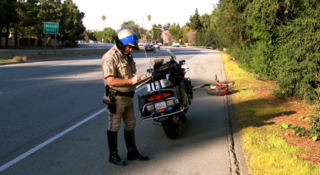
A highway patrol is a police unit, detail, or law enforcement agency created primarily for the purpose of overseeing and enforcing traffic safety compliance on roads and highways within a jurisdiction. They are also referred to in many countries as traffic police, although in other countries this term is more commonly used to refer to foot officers on point duty who control traffic at junctions.
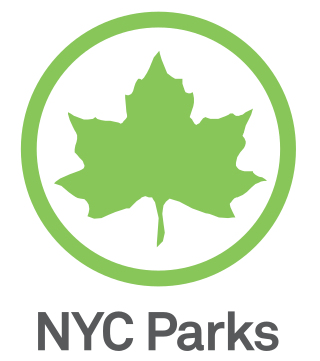
The New York City Department of Parks and Recreation, also called the Parks Department or NYC Parks, is the department of the government of New York City responsible for maintaining the city's parks system, preserving and maintaining the ecological diversity of the city's natural areas, and furnishing recreational opportunities for city's residents and visitors.

The New York State Police (NYSP) is the state police of the U.S. state of New York; it is part of the New York State Executive Department and employs over 5,000 sworn state troopers and 711 non-sworn members.

The New York State Office of Parks, Recreation and Historic Preservation is a state agency within the New York State Executive Department charged with the operation of state parks and historic sites within the U.S. state of New York. As of 2014, the NYS OPRHP manages nearly 335,000 acres of public lands and facilities, including 180 state parks and 35 historic sites, that are visited by over 78 million visitors each year.
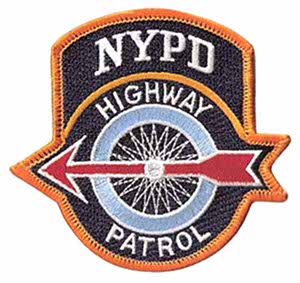
The Highway Patrol are specialized units part of the Highway District with the Transportation Bureau of the New York City Police Department. The Highway Patrol is primarily responsible for patrolling and maintaining traffic safety on limited-access highways within New York City. The Highway Patrol's other duties and roles include accident investigations, advanced driver and radar/laser speed enforcement training for NYPD officers, field sobriety testing at the various testing locations in each Patrol Borough, dignitary and parade escorts, hazardous material and truck traffic enforcement, anti-drag racing programs, and anti-terrorist checkpoints at key bridges and intersections in the city.
Park police are a type of security police who function as a full-service law enforcement agency with responsibilities and jurisdiction in park areas primarily located in cities and other urban areas. In addition to performing the normal crime prevention, investigation, and apprehension functions of a municipal police force, the park police may be responsible for policing other public areas and may also share law enforcement jurisdiction with a force of park rangers tasked with the same law enforcement powers and responsibilities.
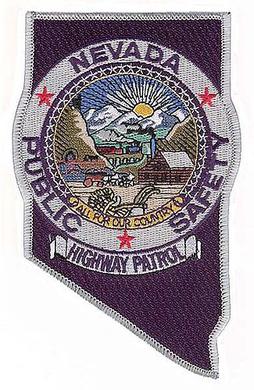
The Nevada State Police (NSP), or Nevada Highway Patrol (NHP), also known as the Nevada Department of Public Safety (DPS) from roughly 1949 to 2021, is the state police and highway patrol agency of Nevada, with state-wide jurisdiction. The Nevada State Police also encompass the Division of Parole and Probation, the Capitol Police Division, the Division of Investigations, the Office of Professional Responsibility, the Fire Marshall Division and the Records, Compliance and Communications Division as well as various other smaller entities.

The Louisiana State Police is the state police agency of Louisiana, which has jurisdiction anywhere in the state, headquartered in Baton Rouge. It falls under the authority of the Louisiana Department of Public Safety & Corrections. It is officially known in that organization as the Office of State Police.
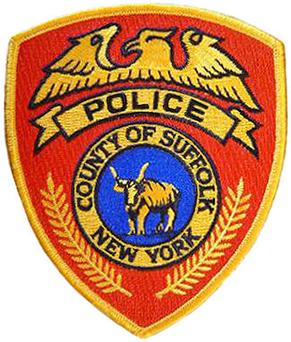
The Suffolk County Police Department (SCPD) provides police services to 5 of the 10 Towns in Suffolk County, New York. It is one of the largest police agencies in the United States, with approximately 2500 sworn officers.

The New Mexico State Police (NMSP) is the law enforcement agency of the U.S. state of New Mexico. Administered by the New Mexico Department of Public Safety, it has jurisdiction anywhere in the state, often working in tandem with local and federal law enforcement. Founded in 1905, NMSP's official mission is to protect the lives, property and constitutional rights of the people of New Mexico.
There are forty-five local police agencies in Westchester County, New York. As well as other agencies. They are responsible for protecting Westchester County, these agencies frequently work with one another in the surrounding counties. Current economic times has caused a few Westchester municipalities to consider consolidation of police services. The Westchester County Department of Public Safety started providing primary police services for the Town/Village of Mount Kisco in 2015.
The Long Island State Park Commission is government agency on Long Island, in the state of New York, headquartered at Belmont Lake State Park in North Babylon. Originally a standalone agency, it is now a regional subdivision of the New York State Office of Parks, Recreation, and Historic Preservation.

A conservation officer is a law enforcement officer who protects wildlife and the environment. A conservation officer may also be referred to as an environmental technician/technologist, game warden, park ranger, forest watcher, forest guard, forester, gamekeeper, investigator, wildernessofficer, wildlifeofficer, or wildlife trooper.

In the United States, a sheriff is the chief of law enforcement of a county. Sheriffs are usually either elected by the populace or appointed by an elected body.

The Maryland Natural Resources Police (NRP) is the law enforcement arm of the Maryland Department of Natural Resources (DNR), tasked with enforcing laws on the state's public lands and waterways, protecting fish and wildlife, and leading search and rescue efforts. The Natural Resources Police is also the state's maritime homeland security agency.

The Florida Department of Law Enforcement (FDLE) is a state-wide investigative law enforcement agency within the state of Florida. The department formally coordinates eight boards, councils, and commissions. FDLE's duties, responsibilities, and procedures are mandated through Chapter 943, Florida Statutes, and Chapter 11, Florida Administrative Code. FDLE is headed by a commissioner who reports to the Florida Cabinet, which is composed of the governor, the attorney general, the chief financial officer, and the commissioner of agriculture. The commissioner is appointed to his position by the governor and cabinet and confirmed by the Florida Senate.
Law enforcement in New York City is carried out by numerous Federal, State, City and Private agencies. New York City has the highest concentration of Law Enforcement in the United States.

In the United States, the state police is a police body unique to each U.S. state, having statewide authority to conduct law enforcement activities and criminal investigations. In general, state police officers or highway patrol officers, known as state troopers, perform functions that do not fall within the jurisdiction of the county sheriff, such as enforcing traffic laws on state highways and interstate expressways, overseeing the security of the state capitol complex, protecting the governor, training new officers for local police forces too small to operate an academy and providing technological and scientific services. They support local police and help to coordinate multi-jurisdictional task force activity in serious or complicated cases in those states that grant full police powers statewide.
A law enforcement agency (LEA) is any government agency responsible for the enforcement of the law.